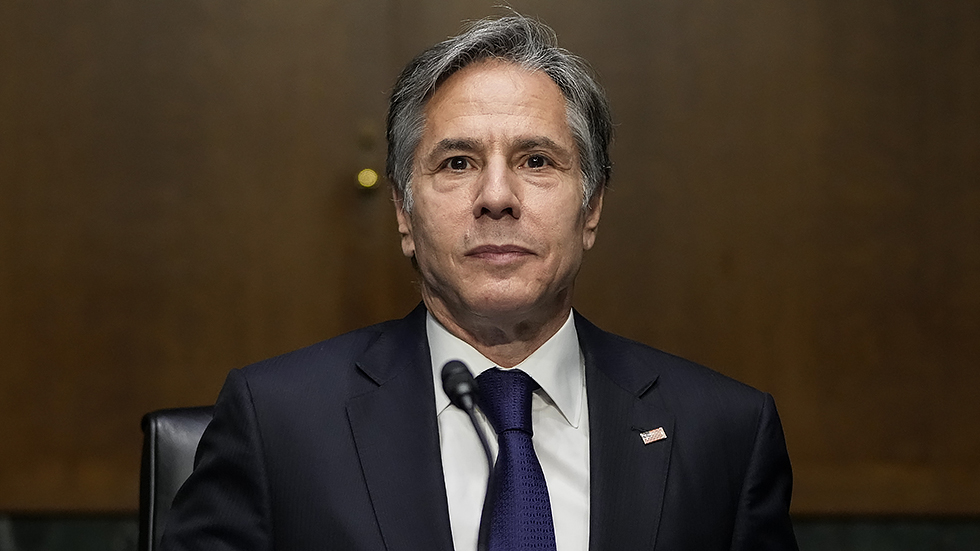Overnight Defense & National Security — Details of Trump’s final days prompt call to fire Milley
It’s Tuesday, welcome to Overnight Defense & National Security, your nightly guide to the latest developments at the Pentagon, on Capitol Hill and beyond. Subscribe here: digital-staging.thehill.com/newsletter-signup.
Joint Chiefs Chairman Gen. Mark Milley reportedly moved to limit former President Trump‘s ability to call for a military strike or launch nuclear weapons days after the deadly Jan. 6 Capitol riot, as recounted in an upcoming book about the end of Trump’s presidency.
We’ll share the details of Milley’s moves behind the scene in Trump’s final days and the congressional blowback sparked by the reports.
For The Hill, we’re Ellen Mitchell and Rebecca Kheel. Write to us with tips: emitchell@digital-staging.thehill.com and rkheel@digital-staging.thehill.com.
Let’s get to it.
Milley moved to limit Trump military strike, book claims

Worried that President Trump might “go rogue,” following the deadly Jan. 6 Capitol riot, Joint Chiefs Chairman Gen. Mark Milley moved to limit the former commander-in-chief’s ability to call for a military strike or launch nuclear weapons, according to “Peril,” an upcoming book about the end of Trump’s presidency written by veteran journalist Bob Woodward and The Washington Post’s Robert Costa.
According to the two journalists, Milley “was certain that Trump had gone into a serious mental decline in the aftermath of the election, with Trump now all but manic, screaming at officials and constructing his own alternate reality about endless election conspiracies.”
A secret meeting: Due to this perceived “decline,” Woodward and Costa wrote that Milley convened a secret meeting at the Pentagon on Jan. 8 in order to review the process of military actions. According to the CNN report, Milley ordered senior military officials to not take orders from anyone unless he was involved.
“No matter what you are told, you do the procedure. You do the process. And I’m part of that procedure,” he reportedly said.
Prior experience: Milley’s fear of the president going “rogue” was apparently based on prior experience. According to “Peril,” Trump issued a military order to withdraw all troops from Afghanistan on Jan. 15, five days before he was set to step down from office.
As Woodward and Costa wrote, Milley “felt no absolute certainty that the military could control or trust Trump and believed it was his job as the senior military officer to think the unthinkable and take any and all necessary precautions.”
Other details: Woodward and Costa also wrote that Milley called Chinese officials in the final weeks of Trump’s tenure to assure them that the U.S. was under control despite the Jan. 6 attack on the U.S. Capitol by a mob of Trump’s supporters.
RUBIO DEMANDS BIDEN FIRE MILLEY
After the reports on Milley emerged, Sen. Marco Rubio (R-Fla.) in a Tuesday letter called on President Biden to fire the four-star general over what he said was the “contemplation” of a leak of classified information to China.
Rubio also criticized Milley for undermining former Trump with reported communications to China.
“I write with grave concern regarding recent reporting that General Mark Milley, Chairman of the Joint Chiefs of Staff, worked to actively undermine the sitting Commander in Chief of the United States Armed Forces and contemplated a treasonous leak of classified information to the Chinese Communist Party in advance of a potential armed conflict with the People’s Republic of China (PRC),” Rubio’s letter said.
Senate lawmakers let frustration with Blinken show

Senate Democrats and Republicans let loose their frustrations Tuesday over the Biden administration’s handling of the U.S. exit from Afghanistan, giving an earful to Secretary of State Antony Blinken.
Republicans branded President Biden as responsible for what they said was a colossal failure in Afghanistan that has jeopardized America’s standing while empowering adversaries like Russia and China.
“I supported a responsible end to the war in Afghanistan,” said Sen. James Risch (R-Idaho), ranking member of the Senate Foreign Relations Committee, during the hearing with the secretary. “No American thinks we should have left this way.”
Where does the blame lie?: Democrats largely placed responsibility for the failures in Afghanistan on presidents of both parties and Congress.
But Sen. Bob Menendez (D-N.J.), the panel’s chairman, did criticize the Biden administration for its handling of the situation, and threatened to hold up Pentagon nominees and subpoena Defense Secretary Lloyd Austin for not appearing at Tuesday’s hearing.
Blinken’s response: Blinken defended the Biden administration’s withdrawal operation, saying the president faced a choice “between ending the war, or escalating.” Keeping the American military in Afghanistan beyond Aug. 31, he said, would have triggered Taliban attacks on U.S. forces and a deeper military engagement.
The Taliban had halted attacks on American personnel following an agreement reached with the former Trump administration, which pledged to evacuate all U.S. military by May 1. Blinken said the Biden administration took a risk in extending that deadline to August based on the needs of the military to finish its drawdown.
Read more about the hearing here.
Army sets June 2022 deadline for COVID-19 vaccine

The Army has set a June 30, 2022, deadline for all its service members to be fully vaccinated against COVID-19, with active-duty troops required to receive the shot even sooner, according to new guidance released Tuesday.
All Army active-duty troops are required to be fully vaccinated by Dec. 15, while National Guard and Reserve members have until the later date, the service said in a statement.
The original mandate: The new guidance follows Defense Secretary Lloyd Austin’s order in late August for all service members to “immediately begin” receiving the COVID-19 vaccine after the Food and Drug Administration gave full approval to Pfizer-BioNTech’s version of the shot. The immunization had previously been available under emergency-use authorization, preventing the Pentagon from mandating it.
Austin did not give a timeline for when service members are required to get the shot, instead directing service branch secretaries to “impose ambitious timelines for implementation.”
The other service deadlines: Navy Secretary Carlos Del Toro on Aug. 30 issued a message to the force giving active-duty sailors and Marines 90 days to be fully vaccinated and Reservists 120 days. That gives those military members a Nov. 28 and Dec. 28 deadline, respectively.
The Air Force, meanwhile, has required its active-duty personnel to be fully vaccinated by Nov. 2 and all Air National Guard and Reserve members to be fully vaccinated by Dec. 2.
Addressing reluctance: Still, some service members have remained reluctant to get the shot, which the Army addresses in its new guidance.
Soldiers who refuse the vaccine will first be counseled by their chain of command and medical providers, but “continued failure to comply could result in administrative or non-judicial punishment – to include relief of duties or discharge.”
Afghan evacuation flights to US remain paused indefinitely

The Biden administration added another case to the small outbreak of measles responsible for temporarily halting flights of Afghan evacuees to the U.S., leaving thousands waiting in bases abroad until they can resume operations.
“Out of an abundance of caution and pursuant to CDC guidance we have recently temporarily paused flights coming to the United States because of six diagnosed cases of measles among Afghan nationals who recently arrived in the United States,” a senior administration official said on a call with reporters.
“We’re approaching this situation with the utmost caution and care as we have the responsibility to ensure the health and well being of every person who is part of this mission,” they said, a group that includes Afghans as well as government employees.
Earlier: The Associated Press first reported on Friday that the U.S. had halted flights of evacuees into the U.S. after confirming a few measles cases among a group that had just landed on U.S. soil.
“When the first confirmed case came back, we took measures to stop the flights. This helped us then be able to contact trace, to put measures in place to isolate individuals,” the official said.
An unclear future: But it’s unclear how long the small outbreak will keep the flights grounded — leaving Afghan evacuees scattered by the thousands at bases across the globe.
ON TAP FOR TOMORROW
-
The International Institute for Strategic Studies will hold a discussion on “ Conflict in the Central African Republic: Domestic insurgency, foreign intervention and peace prospects, at 8 a.m.
-
The Atlantic Council will host a virtual discussion on “National Security and Digital Privacy,” at 9:15 a.m.
-
The Atlantic Council will hold a virtual film screening and discussion on “Source Code,” focusing on artificial intelligence in a future war, with Lt. Gen. Michael Groen, director of the Defense Department’s Joint Artificial Intelligence Center, at 2 p.m.
WHAT WE’RE READING
- General promises ‘surge’ to fight ransomware attacks
- Former U.S. operatives agree to $1.68M settlement over mercenary hacking charges
- Republican taps CNN reporter to investigate Biden’s Afghanistan withdrawal
- Hawley pledges to slow walk Biden’s Pentagon, State picks over messy Afghanistan exit
- Putin knocks US, Turkey during meeting with Syria’s Assad
- Taliban deny top leader died in shootout with rivals
- The Hill: Opinion: 9/11 and US-China policy: The geopolitics of distraction
- Military Times: Lawmakers threaten to subpoena SECDEF over Afghanistan mistakes
That’s it for today. Check out The Hill’s defense and national security pages for the latest coverage. We’ll see you Wednesday.
Copyright 2024 Nexstar Media Inc. All rights reserved. This material may not be published, broadcast, rewritten, or redistributed..













